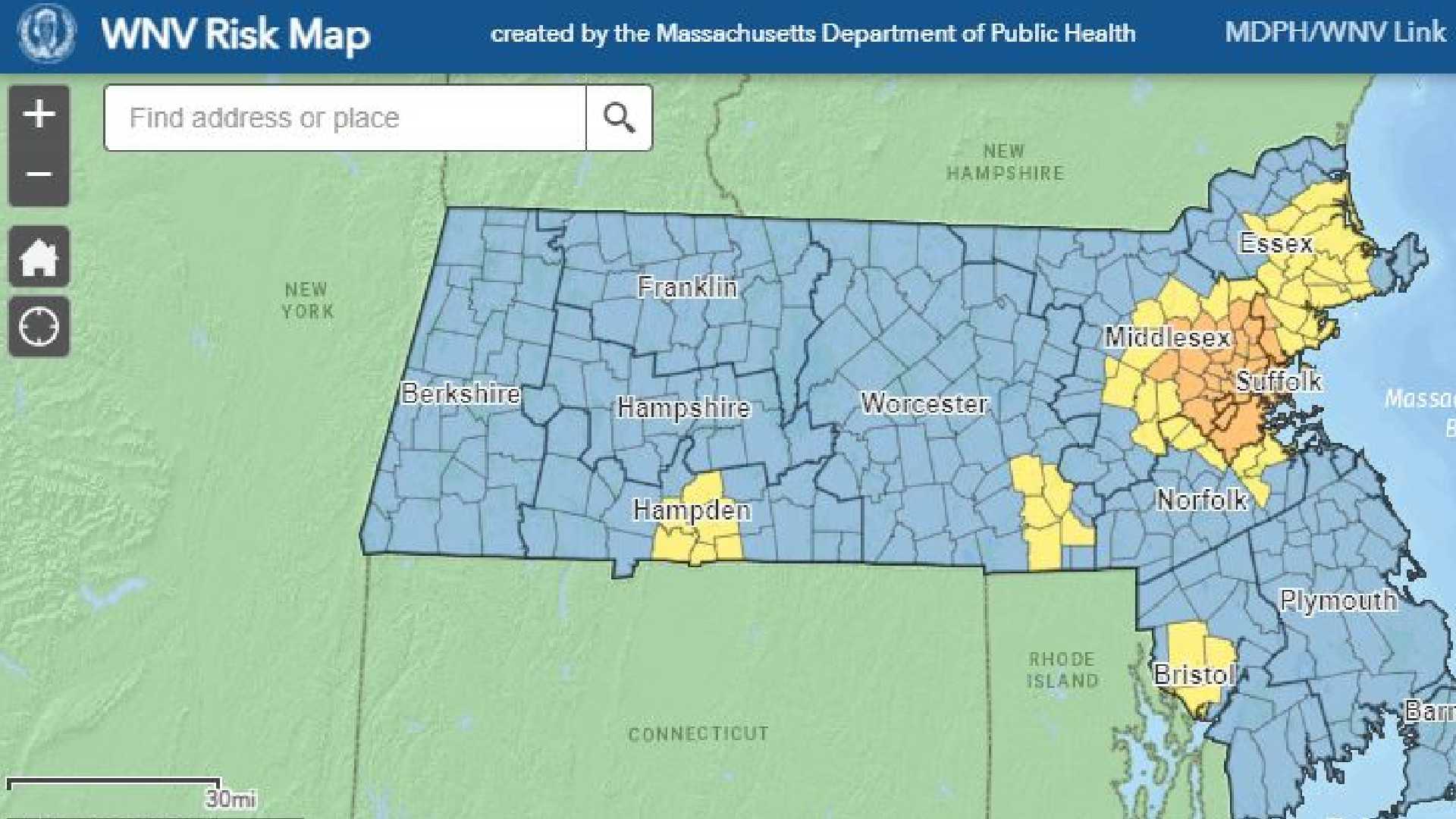Health
West Nile Virus Risk Jumps to High in 10 Massachusetts Communities

BOSTON, Massachusetts – The risk of West Nile virus has reached “high” levels in ten communities across Massachusetts, state public health officials announced Tuesday.
Officials reported that mosquito samples from Acton, Bedford, Billerica, Boston, Brookline, Carlisle, Chelmsford, Dracut, Lowell, and Newton tested positive for the virus.
West Nile virus-positive mosquitoes were first confirmed on June 17, with 168 positive samples found in various counties including Barnstable, Berkshire, Bristol, Dukes, Essex, Franklin, Hampden, Middlesex, Norfolk, Plymouth, Suffolk, and Worcester.
State Epidemiologist Catherine Brown highlighted the rapid increase in findings, stating, “[West Nile virus] findings in mosquitoes have accelerated rapidly over the last several weeks. We are now in the peak time for transmission of mosquito-borne disease to people, and it is important for people to know so they can protect themselves.”
While no human cases of West Nile virus have been reported this year, a goat in Lunenburg tested positive. In 2024, nineteen human cases were reported in Massachusetts.
Symptoms of West Nile virus can include headaches, fever, nausea, vomiting, diarrhea, rash, and body aches, although most people recover without medical help. Those over 50 or with weakened immune systems are at risk for severe illness.
Boston’s Public Health Commissioner, Dr. Bisola Ojikutu, emphasized the need for protective measures during this heightened risk period. She urged residents to use mosquito repellent and limit outdoor activities between dusk and dawn.
In addition to West Nile virus, health officials also warn of Eastern Equine Encephalitis (EEE). Communities like Belchertown, Bridgewater, and Taunton are under moderate risk for EEE.
Currently, there are no reported human cases of EEE this year. However, last year saw four human cases and one fatality from EEE.
Public Health Commissioner Robbie Goldstein stressed the ongoing threat, stating, “Both West Nile virus and EEE pose risks to the people in Massachusetts. The warm and humid weather increases mosquito activity,” and reiterated the importance of preventive measures.
Residents can consult the state’s interactive map for updates on mosquito-borne illnesses in their area.












